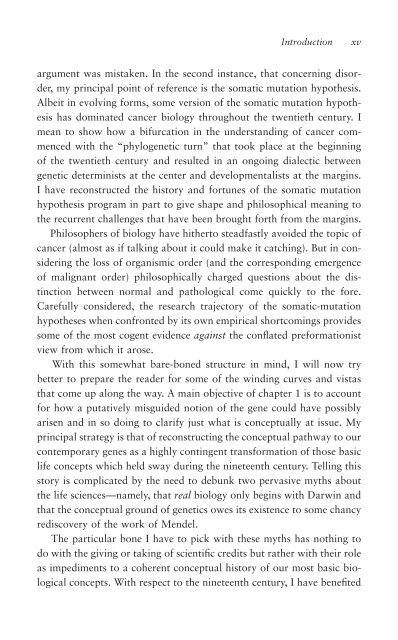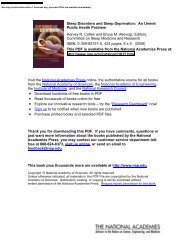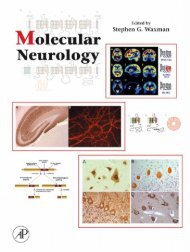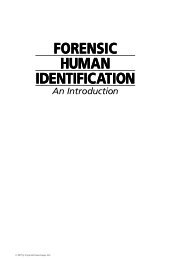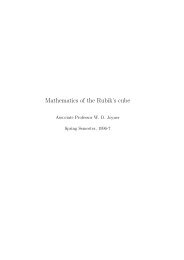A Critique of Pure (Genetic) Information
A Critique of Pure (Genetic) Information
A Critique of Pure (Genetic) Information
Create successful ePaper yourself
Turn your PDF publications into a flip-book with our unique Google optimized e-Paper software.
Introduction xv<br />
argument was mistaken. In the second instance, that concerning disorder,<br />
my principal point <strong>of</strong> reference is the somatic mutation hypothesis.<br />
Albeit in evolving forms, some version <strong>of</strong> the somatic mutation hypothesis<br />
has dominated cancer biology throughout the twentieth century. I<br />
mean to show how a bifurcation in the understanding <strong>of</strong> cancer commenced<br />
with the “phylogenetic turn” that took place at the beginning<br />
<strong>of</strong> the twentieth century and resulted in an ongoing dialectic between<br />
genetic determinists at the center and developmentalists at the margins.<br />
I have reconstructed the history and fortunes <strong>of</strong> the somatic mutation<br />
hypothesis program in part to give shape and philosophical meaning to<br />
the recurrent challenges that have been brought forth from the margins.<br />
Philosophers <strong>of</strong> biology have hitherto steadfastly avoided the topic <strong>of</strong><br />
cancer (almost as if talking about it could make it catching). But in considering<br />
the loss <strong>of</strong> organismic order (and the corresponding emergence<br />
<strong>of</strong> malignant order) philosophically charged questions about the distinction<br />
between normal and pathological come quickly to the fore.<br />
Carefully considered, the research trajectory <strong>of</strong> the somatic-mutation<br />
hypotheses when confronted by its own empirical shortcomings provides<br />
some <strong>of</strong> the most cogent evidence against the conflated preformationist<br />
view from which it arose.<br />
With this somewhat bare-boned structure in mind, I will now try<br />
better to prepare the reader for some <strong>of</strong> the winding curves and vistas<br />
that come up along the way. A main objective <strong>of</strong> chapter 1 is to account<br />
for how a putatively misguided notion <strong>of</strong> the gene could have possibly<br />
arisen and in so doing to clarify just what is conceptually at issue. My<br />
principal strategy is that <strong>of</strong> reconstructing the conceptual pathway to our<br />
contemporary genes as a highly contingent transformation <strong>of</strong> those basic<br />
life concepts which held sway during the nineteenth century. Telling this<br />
story is complicated by the need to debunk two pervasive myths about<br />
the life sciences—namely, that real biology only begins with Darwin and<br />
that the conceptual ground <strong>of</strong> genetics owes its existence to some chancy<br />
rediscovery <strong>of</strong> the work <strong>of</strong> Mendel.<br />
The particular bone I have to pick with these myths has nothing to<br />
do with the giving or taking <strong>of</strong> scientific credits but rather with their role<br />
as impediments to a coherent conceptual history <strong>of</strong> our most basic biological<br />
concepts. With respect to the nineteenth century, I have benefited


